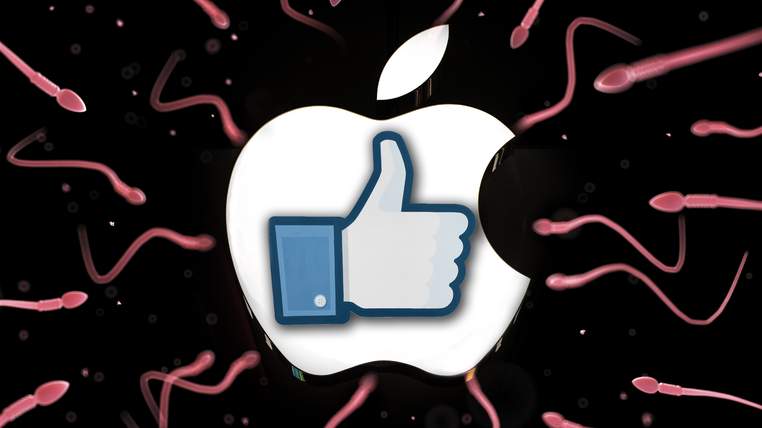Take Money and Freeze Your Eggs: Apple and Facebook Set New Policy for Women Employees
Why egg freezing is a poor surrogate for workplace equality

NEW DELHI: You are a young millennial in your mid-twenties. You’ve worked hard over the last few years, performed very well in high school and studied at one of the best universities in your country. You are bright, ambitious, and young. Now in your mid-twenties, you are offered a promising job at one of the largest tech firms. You are over the moon. Your student debt is high, but you can repay it comfortably if you do well in your new job. You feel you’ve managed to find a way into the firm, and hope to stay there for the next few years working your way up the hierarchy. Oh, and you’re also a woman.
All of this should be reason enough to celebrate the recent announcement that tech giant Apple will be joining Facebook in paying their female employees to freeze their eggs (or oocyte cryopreservation as it’s better known in science). You should be happy that finally there is some equality, and women, who have a much shorter reproductive window than men, will actually have some say in when they want to start a family, if they want to start one. They can focus on their career finally without family planning getting in the way. It can’t get better, right? Unfortunately, it does very little to help women or reduce existing gender inequalities.
Let me explain.
Tech giants like Apple, Google and Facebook, pride themselves on being good employers. Workplace satisfaction is generally quite high. A majority of the employees are young, and these firms try to provide as much support as they can for their employees. One can then understand, then, what Facebook and Apple have in mind when they announced their oocyte cryopreservation programme. It was aimed at allowing women to focus on their career in the prime of their lives, rather than devoting their time to starting and raising a family. As much as we would like it to be otherwise, it is women who often sacrifice their careers to raise a family. By freezing their eggs, women can delay their pregnancy.
Delaying pregnancy, however, is exactly that. While a woman may have had a successful career in her twenties, when she does decide to start a family in her thirties, or forties, or even later, she would still need to step away from work. She would need to take time off, and she would lose out on opportunities. A male colleague, given the current nature of child rearing, would face no such difficulties.
For many of the tech firms, paid parental leave in the US is around four months. In India, for Facebook, women are allowed maternity leave of 12 weeks, and men, only ten days. This makes it impossible for men to equal contributors in child rearing. Not only does it place the onus of raising a family on women, it also disallows men to be more actively involved in the process.
While four months of parental leave may cover the initial prenatal and neonatal periods, it offers little flexibility for new parents. This means that one of the parent, usually the mother, must give up on her career to look after the infant, or leave the infant in someone else’s care.
When faced with criticism of the oocyte cryopreservation initiative, Facebook and Apple responded by saying that this was a part other schemes to help new parents. Facebook, for example, gives new parents $4000 as ‘baby cash’ that can be used for essential baby-care items. But this doesn’t solve the problem. What is needed, for true gender equality at the workplace, is a more flexible working schedule. New parents must be allowed to work from home. To be truly revolutionary in providing an egalitarian workspace, there must be facilities on-site to bring young infants and care for them.
At one level, this programme is very much placing the onus of starting a family back on women. It underscores the incompatibility of having a family and a career. What if a woman wanted to not freeze her eggs but start a family in her late twenties? Wouldn’t she be penalized for such a decision, and ignored? Will this not add pressure on women to freeze their eggs even if they did not want to? In other words, doesn’t this initiative place greater emphasis on women as being disposable part of the workforce and a cog in the wheel rather than as human beings who shouldn’t have to choose between career and starting a family?
Another dimension to the argument is the frailty of egg-freezing per se. Egg-freezing is a relatively new technique, and unlike sperm or embryo-freezing, has poor success rates. Though babies born from this process are healthy, the success rate hovers between 33 and 50%. Even if successful, having a first child at a later age is not without risk. If the egg is fertilized using the sperm of a partner in his thirties or older, there is a considerable health risk. We now have considerable evidence to suggest that paternal age introduces deleterious mutations in the sperm resulting in conditions such as Autism and Intellectual Disability in the offspring.
These are many questions that remain unanswered. The reluctance of many tech firms to robustly address issues of gender equality at the workplace is evident. In isolation, the egg-freezing programme is a dangerous gift. It fails to address the question of gender equality at the workplace. A comprehensive and cogent dialogue is necessary to place the programme amidst other schemes to allow young men and women to start a family without having to compromise on their careers.
(Varun Warrier is a PhD candidate at the University of Cambridge. )



